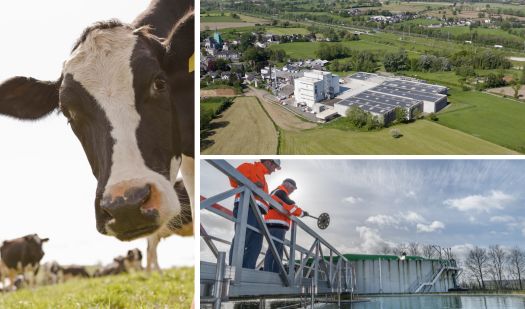
FIE 2024: Trends that will shape 2025
The Food Ingredients Europe 2024 trade show was held in Frankfurt from November 19 to 21. For once, it brought together exhibitors and visitors from all over the world. Over 25,000 players from the food industry were on hand for three days of discussions on trends, products and technologies for the years ahead. The various conferences and topics discussed on the stands and during the exchanges enabled us to target the global trends of 2025. Protein enrichment remains a major topic. It enables us to respond to three key trends of the coming year: healthy and tasty food that respects our environment.
A desire for a healthy, active lifestyle
This is not a new trend, but one that continues to drive innovation and development. For several years now, consumers have been keen to lead a healthy, active lifestyle, and have come to realize that this is first and foremost a question of diet. Protein enrichment is the perfect solution to this trend. Rich in amino acids, they support the growth and recovery of body tissues, which is particularly beneficial for active and sporty people. They also help maintain and develop muscle mass, essential for the elderly. Many products are now enriched with protein, such as drinks, energy bars and yoghurts. As part of this trend of well-being and ageing well, Lactalis Ingredients presented its latest product concept at the FIE: a hyper-protein drink formulated with our micellar casein “Pronativ® – Native Micellar Casein”. With a protein content of 10.3%, this drink is a nutritional solution for maintaining muscle mass and vitality.

Pleasure, texture and sensory experiences
Protein enrichment can also enhance functionality and meet another consumer need: taking care of one’s health, but not at the expense of pleasure and sensory experiences. According to Kantar’s Food 360 2024 study, the search for pleasure concerns 53.6% of innovations in Europe and 52.1% of innovations worldwide. For 78% of consumers worldwide, food is a source of comfort [1]. Dairy proteins improve the texture of products, making them creamier and smoother. They also have a neutral taste, making it possible to create tasty products that satisfy consumers’ desire for pleasure. The functional benefits of proteins can be found in a wide range of applications, from dairy products and bakery products to ice creams and nutritional products.
CSR at the heart of business
Adding functionality to a finished product not only satisfies consumer demand for pleasure, but also responds to another trend, that became essential in recent years: sustainability and respect of the environment. For example, this functionality can be used to reduce the list of ingredients in a finished product, by replacing some additives that are usually present for texture or creaminess. These foods are listed as “clean label”. They are part of the CSR trend, as they imply transparent, sustainable practices geared towards consumer well-being. Beyond these finished products with shortened ingredient lists, sustainability and respect for the environment are today’s key issues and are gaining in importance. Companies’ CSR commitments are evolving year after year and are more and more valued by customers and end consumers.

The agri-food industry is becoming increasingly demanding, enabling companies to work on a variety of issues, such as reducing environmental impact and animal welfare. Reducing carbon footprints, water resources, waste management or energy production are major issues for food manufacturers, and each company highlights its actions and results. At Lactalis Ingredients, CSR is at the heart of our identity. You can find all the commitments and actions implemented by the division on our website or by consulting our latest CSR report, published in 2024.
Any question ? Contact-us !
Sources:
[1] Etude Food 360 2024 : comprendre les enjeux alimentaires de demain – KANTAR















